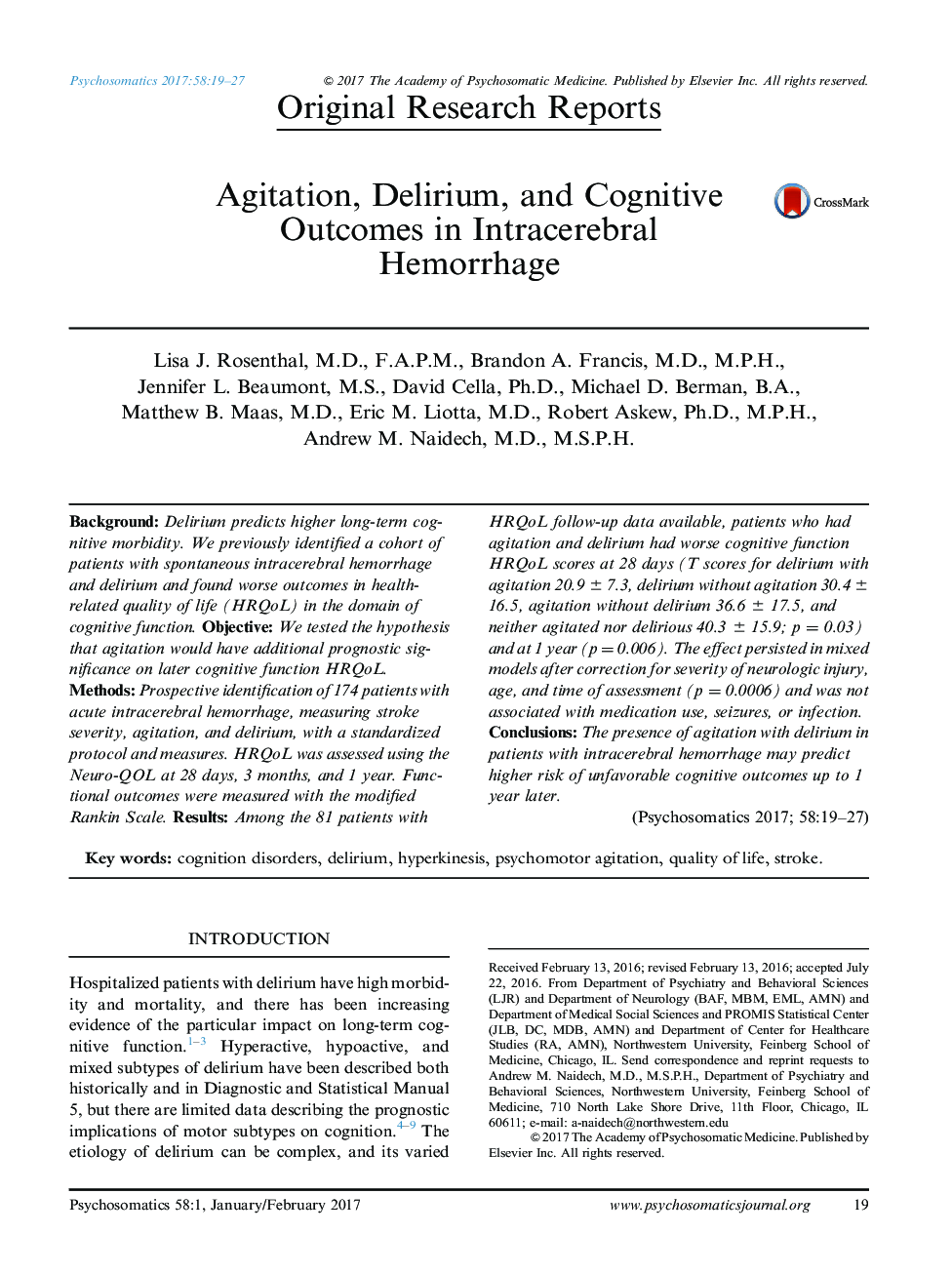| کد مقاله | کد نشریه | سال انتشار | مقاله انگلیسی | نسخه تمام متن |
|---|---|---|---|---|
| 4934728 | 1363506 | 2017 | 9 صفحه PDF | دانلود رایگان |
BackgroundDelirium predicts higher long-term cognitive morbidity. We previously identified a cohort of patients with spontaneous intracerebral hemorrhage and delirium and found worse outcomes in health-related quality of life (HRQoL) in the domain of cognitive function.ObjectiveWe tested the hypothesis that agitation would have additional prognostic significance on later cognitive function HRQoL.MethodsProspective identification of 174 patients with acute intracerebral hemorrhage, measuring stroke severity, agitation, and delirium, with a standardized protocol and measures. HRQoL was assessed using the Neuro-QOL at 28 days, 3 months, and 1 year. Functional outcomes were measured with the modified Rankin Scale.ResultsAmong the 81 patients with HRQoL follow-up data available, patients who had agitation and delirium had worse cognitive function HRQoL scores at 28 days (T scores for delirium with agitation 20.9 ± 7.3, delirium without agitation 30.4 ± 16.5, agitation without delirium 36.6 ± 17.5, and neither agitated nor delirious 40.3 ± 15.9; p = 0.03) and at 1 year (p = 0.006). The effect persisted in mixed models after correction for severity of neurologic injury, age, and time of assessment (p = 0.0006) and was not associated with medication use, seizures, or infection.ConclusionsThe presence of agitation with delirium in patients with intracerebral hemorrhage may predict higher risk of unfavorable cognitive outcomes up to 1 year later.
Journal: Psychosomatics - Volume 58, Issue 1, JanuaryâFebruary 2017, Pages 19-27
